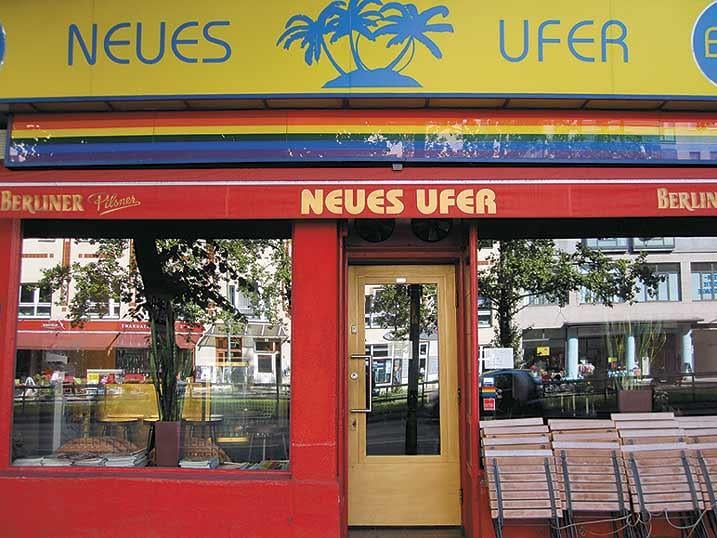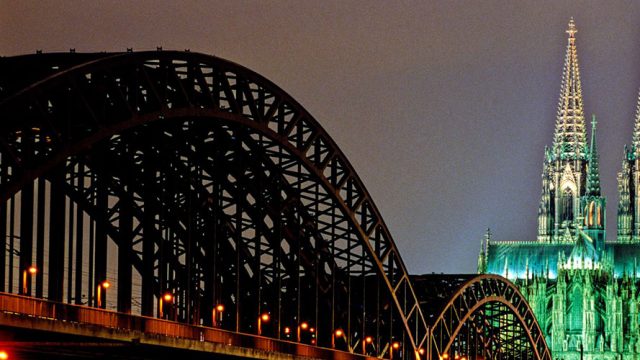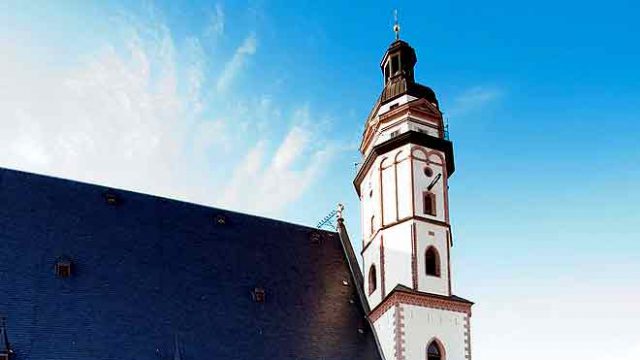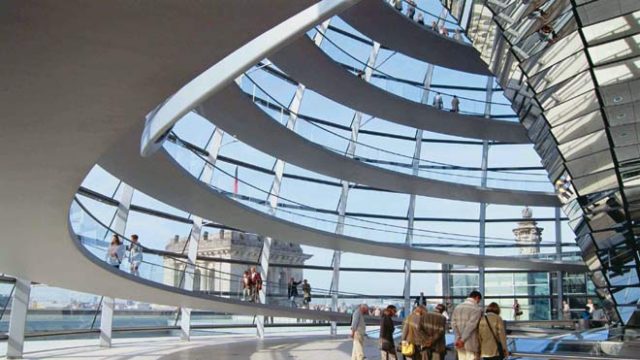The Neues Ufer café and its neighbourhood are surprisingly humdrum after the walk through colourful Schöneberg with
Off Nollendorf Platz is the sometime home of Christopher Isherwood, author of seminally seedy 1930s Berlin novels which established the defining myth of a decaying, decadent city on the eve of the Nazi takeover. But when homophobic facism took hold of Germany, Isherwood moved on to America.
Yet, Berlin continued to attract artists who felt elsewhere was not avant-garde enough. Fast forwarding to the 1970s we find David Bowie and Iggy Pop leaving America (but Bowie made sure to interview Isherwood first about what to do in Berlin) to share an apartment on Hauptstrasse 155, a short walk from Isherwood’s ex-home, while turning out some great albums at the legendary Hansa Studio.
Both of them were trying to kick drug habits; Pop was a heroin addict and Bowie’s brain was disintegrating due to cocaine. He thought Schöneberg would be a healthy place to be, because in America drugs were just a phone call away, while in Berlin you must “buy your own groceries”. In the Cold War city, “a city full of bars with sad and disappointed people”, as Bowie put it, nobody “gave a shit” about a British pop star cohabiting with a rowdy American rocker, so they could binge-drink without getting harassed by fans.
For Bowie, at the critical age of 30, this was an experiment in being a non-celebrity after the glamrock years, a new life in a place where he could explore his bisexual leanings as well as get musically inspired by the Krautrock of Kraftwerk. Tourists who see their house are surprised at how unassuming it is — though I’m told it was rather large inside, upwards of ten rooms with black walls. It’s a thirty-minute walk from here to Hansa Studio and if the weather happened to be nice, Bowie bicycled up Potsdamer Strasse.
The still functioning studio is where he recorded, with Brian Eno, Robert Fripp and others, tracks for the 1977 ‘auteur’-style albums Low, Heroes and perhaps bits of Lodger (1979), which together represent a musical triptych of sorts.
While in Berlin, he also painted, got into Brechtian theatre, grew a beard, acted with Marlene Dietrich and helped Pop produce The Idiot and Lust for Life, two of the greatest rock albums of all time (the latter includes the favourite song of many a travel writer, ‘The Passenger’).
Just next door from their old apartment is the legendary café Neues Ufer, which in Bowie’s time was called Anderes Ufer (the name a German euphemism for homosexual). Bowie’s favourite breakfast then was espresso and cigarettes; on the menu you’ll also find wholesome organic sandwiches made of German brown bread, but otherwise it’s a liquid menu—wine, beer, cocktails and some harder stuff at very reasonable rates: the Neues Ufer isn’t a celebrity bar.
The current owner, Frank, an Anderes Ufer regular so much in love with the place that he bought it seven years ago rather than see it shut down, never met Bowie, but points out that although the joint has been renovated, its interiors are essentially the same. In those days the vibe was far more intense, but some of the edge of West Berlin life was lost when the wall went, Frank laments. In the afternoons the place is quiet, except for the odd Bowie fan on pilgrimage.
Legend has it that whenever Bowie comes to Berlin he asks the driver to go via Hauptstrasse and I’d like to think that he wrote the lyrics for his best songs in this café, while the hangover mists cleared.
Each January, Bowie fans descend on the bar to celebrate the Thin White Duke’s birthday.The bash is always on the first Saturday following January 8, Bowie’s birthday, but as this year January 8 happens to be a Saturday, the party will actually be on the correct date. All are welcome. Neues Ufer, Haupstrasse 157, 10827 Berlin, +49-30-78957900.Open: 2pm-2am
Brechtian theatre
David Bowie
Germany





